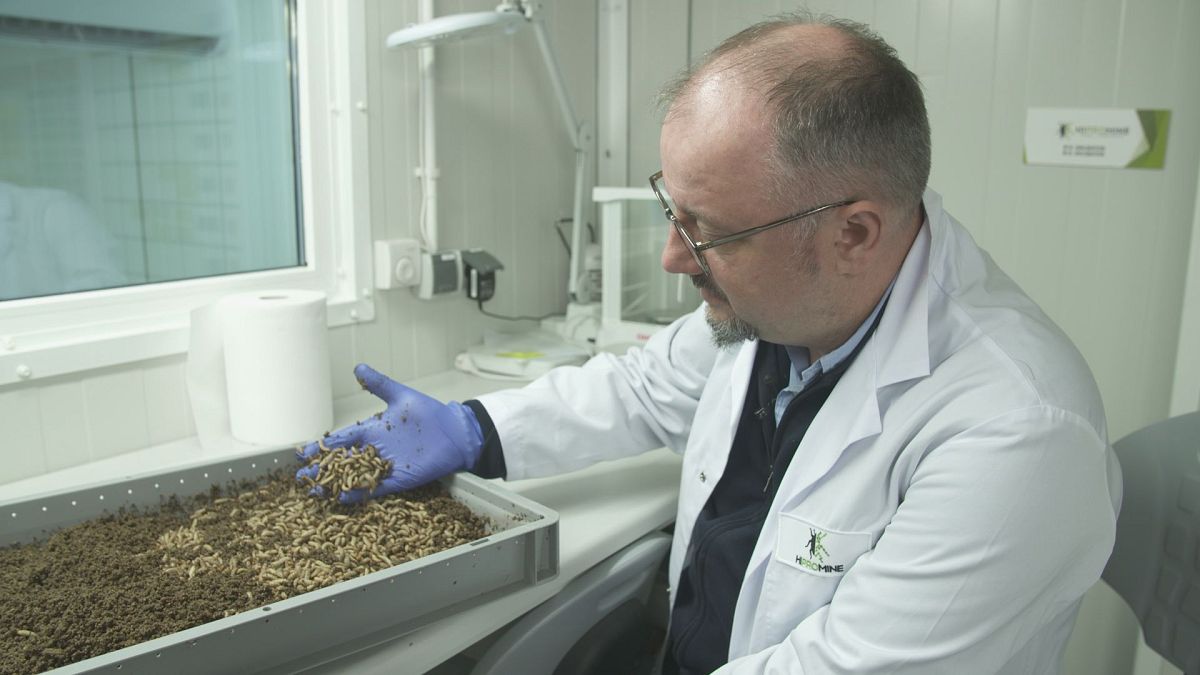HiProMine is a Polish company using compost waste to feed larvae. When the larvae are big enough they are then given to fish and even poultry as a feed substitute. The CEO, Damian Jozefiak, gives us his insight into why this is both helpful and good for the circular economy.
For sturgeon or trout, insects are their natural feed. But researchers in Poland are looking into replacing what they eat on fish farmers with another kind of protein. Larvae and insects are being manufactured on a large scale to see whether fish and even poultry will accept them as a replacement to fishmeal.
The larvae only take two to eight weeks to develop. During that time they feed on biological waste and they don't require much else. This makes them the perfect substitute for fishmeal and they also contribute to the circular economy.
Damian Jozefiak, the CEO of HiProMine, the company behind this European project, believes that studying and developing insect and larvae production on an industrial scale to transform them into protein for fish and animal consumption is key for a sustainable world.
He tells us that his company's activities are closely linked to the Green New Deal as they reduce carbon dioxide emissions via the management of various types of waste or pre-consumer waste.
He says that "waste would normally go on the compost heap and produce terrible amounts of greenhouse gases", but HiProMine uses it "as a substrate, as food for insects". Therefore, they convert the low-quality waste into high-quality protein, fat and many other nutraceuticals.
The world's population is constantly increasing. This means that there are more and more people to feed. On top of that, people are increasingly looking for better and healthier diets. This fish food substitute could help to increase fish stocks on fish farms and help make them healthier for the consumer market.
Jozefiak tells us that "the European Union is almost entirely dependent on protein imports. For feed, huge amounts of proteins are imported". By producing protein for animal consumption through larvae and modern technology, HiProMine hopes to one day relieve the EU of some of this dependence.
To watch the full interview with Damian Jozefiak, the CEO of HiProMine, click on the media player above.
